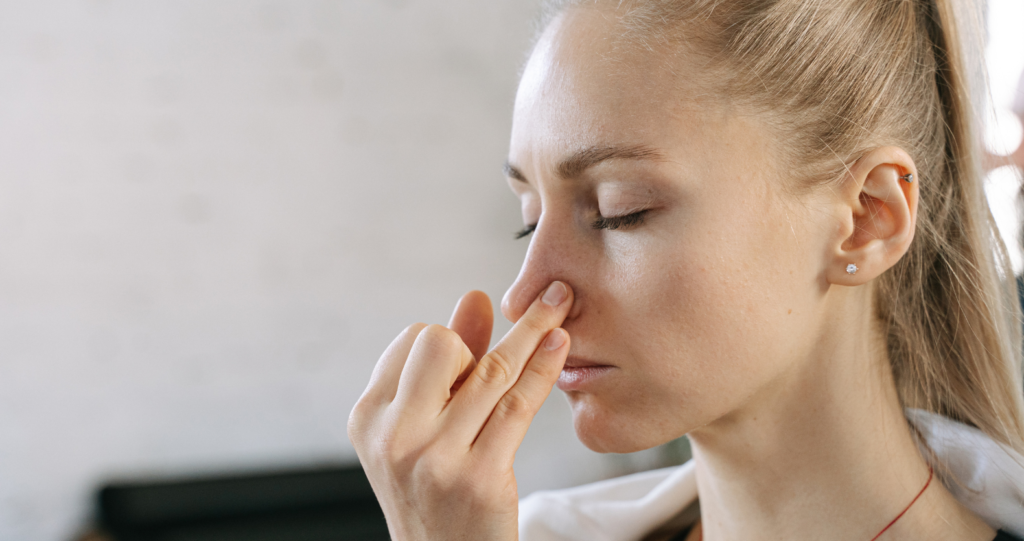
Preventive Dentistry: Exploring the Causes of Bad Breath
Did You Know
Bad breath, scientifically known as halitosis, is a common oral health concern that can be embarrassing and socially distressing and that is why preventive dentistry is key. Bad breath affects millions of people worldwide and can have a significant impact on one’s self-esteem and interpersonal relationships.
According to a recent survey conducted by the American Dental Association (ADA), a staggering 80 million people in the United States alone suffer from chronic bad breath. This eye-opening statistic underscores the urgency of addressing this prevalent issue and seeking effective solutions to ensure optimal oral hygiene through dental cleanings or periodontal therapy.
Causes of Bad Breath:
- Poor Oral Hygiene: One of the primary causes of bad breath is inadequate oral hygiene. When proper brushing, flossing, and tongue cleaning are neglected, bacteria in the mouth multiply, leading to the production of foul-smelling gases. Establishing a thorough oral care routine is crucial for prevention of bad breath at its source. Additionally, untreated dental issues such as tooth decay or infections may require a root canal to eliminate the bacteria causing persistent bad breath.
- Bacterial Buildup: The mouth is a breeding ground for bacteria, and certain types of bacteria produce sulfur compounds responsible for the unpleasant odor associated with bad breath. These bacteria thrive on leftover food particles, especially in areas that are difficult to reach with regular brushing.
- Dry Mouth: Saliva plays a vital role in maintaining oral health by neutralizing acids and flushing away bacteria. A dry mouth, often caused by factors such as dehydration or certain medications, reduces saliva production, creating an environment conducive to bad breath.
- Dietary Choices: The foods we consume can also contribute to bad breath. Strong-smelling foods like garlic, onions, and certain spices contain compounds that are absorbed into the bloodstream and expelled through the lungs, affecting the breath.
- Underlying Health Issues: Chronic bad breath can sometimes be indicative of underlying health issues such as respiratory infections, diabetes, or gastrointestinal problems. Seeking professional dental advice is crucial in identifying and addressing these potential health concerns.
- Tobacco Use: Smoking and tobacco use not only stain teeth but also contribute significantly to bad breath. Tobacco products can dry out the mouth, promote bacterial growth, and leave a lingering odor or smell that is challenging to eliminate.

Addressing bad breath requires a multifaceted approach that involves maintaining good oral hygiene, making healthy lifestyle choices, and seeking professional dental care. Recognizing the symptoms of bad breath, such as persistent odor despite regular brushing, is essential in identifying the underlying causes. The startling statistic from the ADA serves as a wake-up call, urging individuals to prioritize their oral health and take proactive steps to combat bad breath. By understanding the root causes and adopting preventive dentistry measures, we can collectively work towards a fresher and more confident world of smiles.
FAQs
What is the preventive measure for halitosis and smelly breath?
Preventing halitosis (bad breath) involves maintaining proper oral hygiene, such as brushing and flossing regularly, using mouthwash, and visiting your dentist for regular cleanings. Staying hydrated, avoiding certain foods like garlic, and quitting smoking also help prevent bad breath.
What dental problems cause bad breath?
Dental problems like gum disease, tooth decay, and dry mouth are common causes of bad breath. These issues lead to the accumulation of bacteria in the mouth, which produce unpleasant odors. Poor dental hygiene can also contribute to the problem.
Can a dentist cure bad breath permanently?
While a dentist can treat underlying causes of bad breath, such as gum disease or tooth decay, it may not be possible to guarantee a permanent cure. Regular dental visits, good oral hygiene, and lifestyle changes are key to managing and reducing bad breath over time.
Why do I have bad breath even though I have good hygiene?
Even with good oral hygiene, bad breath can still occur due to factors like dry mouth, certain medications, or underlying health conditions such as diabetes or acid reflux. It’s important to consult with a dentist to rule out other causes if bad breath persists.
